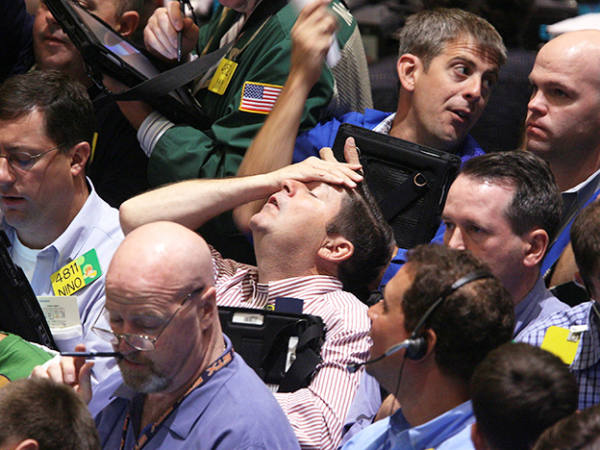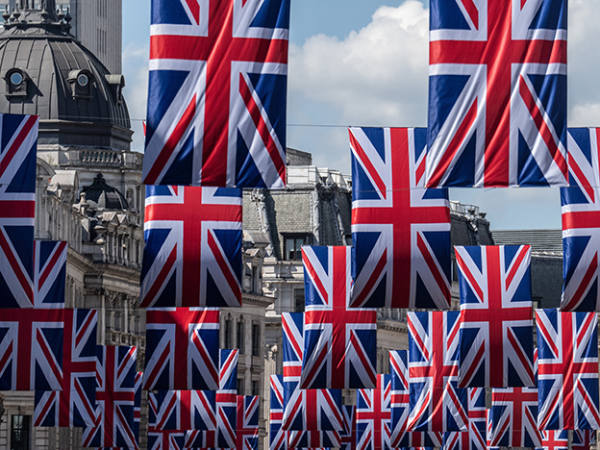The widely reported and drawn-out spat between Elon Musk and Mark Zuckerberg recently entered a new phase with the launch of Threads, the latter entrepreneur’s text-based app that is designed to rival’s Musk’s Twitter social media network.
The fact that the new app bears several similarities to the established brand has not been lost on Musk. Indeed, Twitter indicated that it was considering a lawsuit against Meta (US:META) over its new platform, accusing it of poaching former employees to create a rival that is indistinguishable in many respects (Meta denies it has hired any former Twitter staff for the project).
Some might argue that Zuckerberg has form in this regard given previous litigation brought by Cameron and Tyler Winklevoss – former classmates and business partners of the Facebook founder – alleging that he had essentially copied the idea for the platform from the brothers, along with source code intended for the website. But that’s another story.
While it is not difficult to identify similarities between Threads and its established forerunner, a unique advantage of the new app is that users can simply import all their existing contacts from Instagram. Threads attracted more than 100mn users in its first week of operation, but the app did not launch in the European Union, because of the bloc’s strict privacy standards. That could be a general issue going forward, as Threads can gather a raft of sensitive information about users, such as location, browsing and search history, messages, photos, videos and personal data. Over one-third of the global population already accesses Meta services, while Musk has yet to settle on a definitive subscription model for Twitter, which has been frustrating for users and advertisers alike.
The rationale for Musk's Twitter deal remains
The history of social media is littered with endeavours that failed to live up to their early promise, from Google Plus to MySpace, so it would be unwise to make any assumptions about which of the two websites will prevail or even if they will co-exist in a few years from now. Twitter retains its dominant position in this corner of the tech market and has thus far successfully resisted challenges to its supremacy from other rival apps such as Mastodon and BlueSky. But the dynamic nature of social media means that it is hard to establish competitive moats, thereby imperilling the ability of participating companies to fend off competition while maintaining profitability.
Some commentators have questioned the rationale behind Musk’s move to acquire Twitter, not least because he had already been accused of spreading himself rather too thinly across a range of corporate endeavours. The Washington Post recently reported that former Twitter chief executive Jack Dorsey had reversed his admittedly lukewarm support for Musk’s stewardship of the microblogging service by suggesting that he should have walked away from the original deal.
Undoubtedly, there is a political element at play. Musk made no secret of the fact that he believed Twitter, in its previous incarnation, had consistently exhibited a strong left-wing bias, undermining its nominal status as a “digital town square”. Then there’s the criticism levelled at Meta by Republican lawmakers over its relationship with the US Federal Bureau of Investigation, which, they claim, had an indirect impact on the result of the 2020 presidential election.
Empirical evidence can obscure the impacts of personalities
Politics aside, the long-running rivalry between the two tech billionaires lurched into farce recently when Musk declared that he was “up for a cage match” with Zuckerberg – an unedifying prospect if ever there was one. It’s obviously amusing in a sense, but levity might not seem like an appropriate response if you happened to hold shares in Meta – or even Tesla (US:TSLA) for that matter. The fundamental question for shareholders is: can narcissistic leadership and personal rivalries lead to poor corporate decision-making, or will clashes of personality drive innovation and business dynamism?
The Musk/Zuckerberg feud is the latest in a succession of high-profile personal spats down through the ages, which are often complemented by fractious corporate rivalries – think Microsoft versus Apple (Gates versus Jobs). And we can sometimes get overly obsessed with empirical evidence when analysing stocks, thereby placing insufficient emphasis on the impact of the personalities at the helm.
The 'dirty Digger' versus 'Uncle Bob'
To stick with media, one of the most glaringly obvious rivalries in UK corporate history was between Rupert Murdoch and Robert Maxwell – a clash that may well have contributed to the latter media mogul’s demise and the £460mn hole that was subsequently discovered in the pension funds of his companies.
Maxwell’s apparent obsession with the Australian tycoon may have commenced as early as 1969, after Murdoch successfully acquired the News of the World following an acrimonious year-long battle with Maxwell's Pergamon Press. Around the same time, Murdoch also acquired the then loss-making The Sun newspaper, another paper Maxwell wanted to own, before changing it into a tabloid format, which eventually saw it become the nation’s top-selling daily.
The events of 1969 must have rankled, but Maxwell (again through Pergamon) had to wait until 1984 to challenge his rival through the purchase of Mirror Group Newspapers from Reed International. The circulation of the group’s newly acquired flagship tabloid – The Daily Mirror – was second only to that of The Sun. But what followed confirmed an earlier UK department of trade report into Maxwell’s business dealings which asserted that he was not “a person who can be relied on to exercise proper stewardship of a publicly quoted company”.
In a bid to match Murdoch’s global reach, Maxwell embarked on a frenetic buying spree culminating in the 1988 deal to acquire US publisher Macmillan for $2.6bn (£2.1bn) – a sum that was way in advance of industry estimates. A further deal to acquire The New York Daily News – another attempt to match Murdoch’s profile in the US – proved a similarly ill-advised venture. All of this transpired as the Mirror Group’s flagship title was haemorrhaging readers.
Undermined by a cult of personality?
It might reasonably be argued that the financial calamity that eventually ensued had the Murdoch/Maxwell rivalry at its core. But it’s clear that the most intemperate business decisions were taken by Maxwell, including desperate attempts to keep the bankers at bay by plundering millions from his companies’ pension funds.
You could even say that the Maxwell Communication Corporation – then a constituent of the FTSE 100 – was fatally undermined by what amounted to a cult of personality. There is a dark flipside to key person risk if corporate governance constraints are ignored. It is the job of independent non-executive directors to proactively monitor executive directors and act in the interest of corporate stakeholders. But the internal control failures must be linked in some respects to Maxwell’s dominant personality, although cronyism also played a part.
At any rate, the debacle speaks to inadequate – or virtually non-existent – oversight at board level, along with repeated failings by Coopers & Lybrand, Maxwell’s long-standing auditor. Goldman Sachs was also criticised in a subsequent government report that partly blamed the bank for allowing Maxwell to manipulate the share price of Mirror Group Newspapers after it floated in 1991.
It should be remembered that Maxwell had returned Mirror Group to profitability by ending restrictive labour practices and introducing modern technology, a considerable achievement given the influence of trade unions at the time. Yet it was Murdoch who is generally held to have “broken the print unions”, after he moved production of The Times and The Sunday Times to new premises in Wapping where there would be direct input of copy by journalists.
Both men succeeded in building global media empires, although both pushed leverage beyond reasonable limits to do so, putting great financial strain on their respective organisations. In addressing the debt issue, however, the two men would take very different paths. Murdoch was ultimately willing to relinquish absolute control over his media group, whereas Maxwell was unwilling to accept a diminished role at the helm. Unfortunately, shareholders and Mirror Group pensioners were left to count the cost.
We shouldn't confuse competition with rivalry
The rivalry between Musk and Zuckerberg doesn't necessarily bear any marked similarities to that of Maxwell and Murdoch, at least beyond the fact that both generated a lot of media attention. But it’s this public focus that could conceivably engender reckless decision-making and/or skew incentives for businesses. It could certainly be argued that Maxwell’s downfall was due to a narrow perspective, specifically that he often measured the success of his business against a single competitor.
The distinction isn’t immediately obvious, but we shouldn’t confuse competition with rivalry. The former typically gives way to a more objective approach, unencumbered by personal animus. And competition in its purest form is often beneficial for all businesses involved, as it can encourage product and service innovation, while potentially discouraging unnecessary price increases for customers. For now, it’s impossible to say whether the rivalry between Musk and Zuckerberg will produce an enhanced offering for their clientele. What we do know is that media has evolved rapidly in the digital age. Unlike the battles of the past, it wouldn't be at all surprising if a third-party eventually disrupted the disrupters as they gear up for their big fight.











